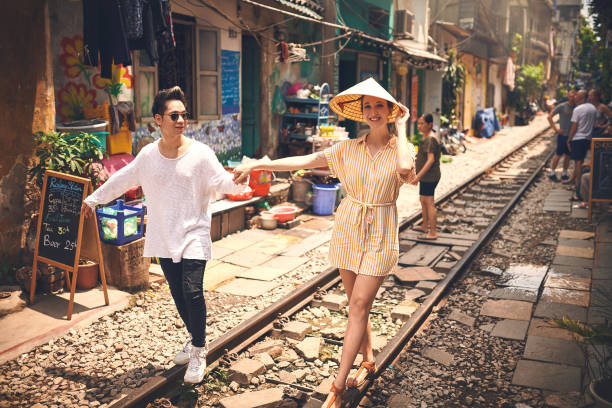
Is Vietnam safe to travel to?
Although Vietnam has been rated as one of the safest nations for travelers in the world, it is always a good idea to be prepared. These health and safety guidelines will ensure that you have a more enjoyable trip to Vietnam. For your convenience, we've also included a list of public and private hospitals.
CONCERNS WITH CORONAVIRUS
Preventive health services and measures
Since the beginning of the novel coronavirus (COVID-19) outbreak, Vietnam has kept a close eye on it and implemented a number of proactive, comprehensive steps to safeguard the safety of its inhabitants and visitors.
Those who are experiencing signs of the virus, such as fever, cough, or difficulty breathing, should call Vietnam's health hotline at 19003228 right away.
The Vietnamese Ministry of Health has mandated that all Vietnamese and foreigners in the nation wear face masks on flights, in airport terminals, and in crowded public venues such as supermarkets, bus stops, and public transportation vehicles to prevent the virus from spreading.
TRAVELING IN VIETNAM: HEALTH ADVICE
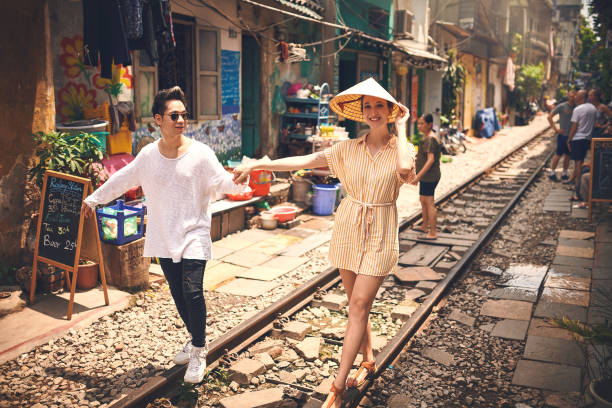
 Prior to departing,
Prior to departing,
Make sure you have travel insurance for your trip to Vietnam before leaving. Consult your doctor or a local travel clinic two months before your departure for the most up-to-date information on health hazards in Vietnam, as well as any vaccines you might require.
Women who are pregnant should get professional assistance from their doctors. Antimalarial medications and many diarrhea remedies aren't fully safe to take while pregnant.
Carry a doctor's letter with you if you have a medical condition or allergy that requires special attention. You should also include a medical kit that includes the following items:
- Insect repellent based on DEET.
- For pain relief, take paracetamol or ibuprofen.
- Hydrocortisone or other anti-itch ointment Sunscreen
For the treatment of allergies, antihistamines are used. Some prescriptions may be difficult to come by in Vietnam; ensure you have a sufficient supply of any prescription pills you require.
Vietnam's medical facilities
There are a number of state-owned and private hospitals with English-speaking staff in major cities such as Vietnam Hanoi, Danang, and Ho Chi Minh City. While tiny pharmacies may be found in practically every Vietnamese city, you may be far from the next pharmacy or hospital in rural areas.
VIETNAM'S MAIN HEALTH CONCERNS
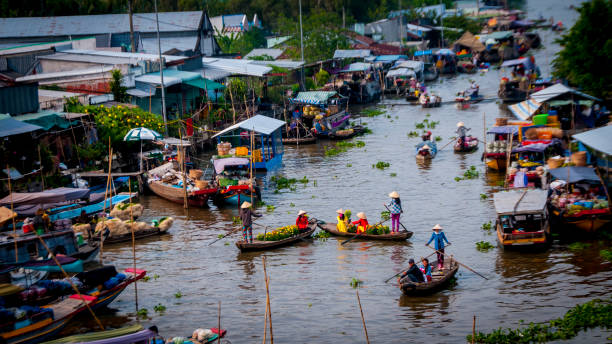 Vietnamese pollution
Vietnamese pollution
Asthma and allergy symptoms may be exacerbated by air pollution. Coughing and nasal drip are two common symptoms. If you have respiratory problems, consider investing in a tiny mask to wear while traveling around cities, or plan to spend more time in the countryside if possible.
Viruses spread by mosquitos
In the rural highlands, the danger of developing malaria is increased. If you want to travel to any of Vietnam's remote areas, anti-malarial medicine is recommended. Dengue fever is becoming more common in Southeast Asia, with the majority of cases occurring in the Mekong Delta, which includes Ho Chi Minh City. Because there are no immunizations available, the best way to avoid getting bitten is to use insect spray between sunrise and dusk.
In the rural highlands, the danger of developing malaria is increased. If you want to travel to any of Vietnam's remote areas, anti-malarial medicine is recommended. Dengue fever is becoming more common in Southeast Asia, with the majority of cases occurring in the Mekong Delta, which includes Ho Chi Minh City. Because there are no immunizations available, the best way to avoid getting bitten is to use insect spray between sunrise and dusk.
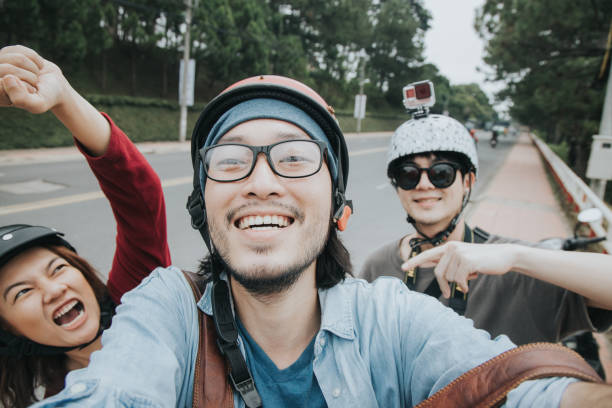 Concerns over the heat
Concerns over the heat
Throughout the year, Vietnam is hot and humid. The sun's power is not to be underestimated. Because sunburn can occur fast, it's recommended to use sunscreen all day. Reapply frequently, especially if you're going to a beach resort. Heat fatigue, which can cause headaches and irritability, is another concern. Water is essential. Overexposure to the sun can lead to heatstroke, which may necessitate hospitalization. Get medical attention right away if you're feeling weak, dizzy, or nauseated, and your temperature is above 41°C.
Infections caused by food
When visiting unfamiliar nations, diarrhea is a regular concern. In remote places, stick to bottled water and avoid ice. Look for eateries that have a large turnover of customers and serve freshly cooked meals to avoid getting bacteria. In general, street food in Vietnam is safe, but use your best judgment when selecting sellers. Take rehydration salts and stay hydrated if you have stomach troubles or diarrhea. If the difficulties don't go away, see a doctor.
Bites from critters
When sleeping in hostels and other shared dormitories, as well as hotels, these are occasionally a difficulty. If you've been bitten by fleas, bed bugs, or lice, go to the local clinic for aid. When in touch with wild or domesticated animals, keep an eye out for rabies. When visiting Ha Long Bay, stay away from the monkeys on Cat Ba Island. Be aware of parasites, leeches, and deadly snakes lurking in the bush when jungle trekking. If you've been bitten, seek medical help right away.
TIPS FOR SAFE TRAVEL IN VIETNAM
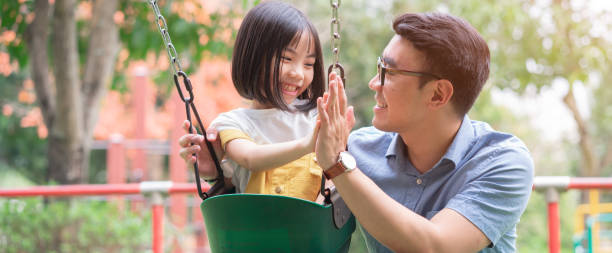
Despite the fact that Vietnam is a very safe country, petty theft is a valid issue, particularly in the larger cities. Avoid extending cameras and cellphones on public streets and corners: the majority of robberies occur as drive-by robberies. Keep your camera near to your body and away from the flow of traffic when taking images on the sidewalk.
When walking around Ho Chi Minh City, women, in particular, should keep a tight grasp on their bags and purses. Place your baggage in the seat compartment or on the front of the bike when riding a motorcycle. Snatched bags carried on the shoulder or in bike baskets are easy targets.
Place your valuables in the safe or in your bags before leaving your hotel or guesthouse room. In general, it's a good idea to keep a watch on your belongings, keep a check on your baggage, and avoid flashing huge sums of money or fancy electronics in remote regions.
Unfortunately, law authorities will be powerless to recover the stolen property if you are a victim of theft.
Scams using taxis
In Vietnam, taxi scams include manipulated meters, overcharging, perplexing currencies, and regulated fares. Mai Linh and Vinasun are two reputable companies you can trust. Both of these taxi firms have new vehicles with sealed meters, as well as a pick-up service that operates in most Vietnamese cities and towns. They can be found as soon as you arrive at one of Vietnam's international airports.
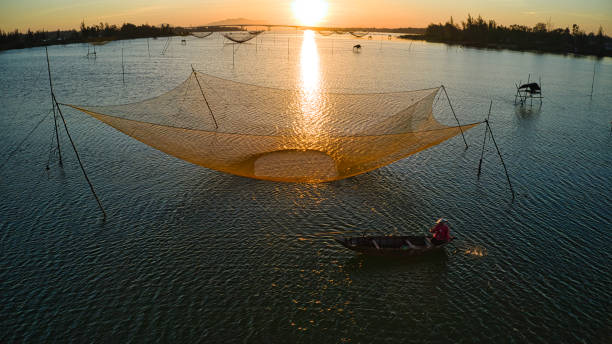 Scams Against Visitors
Scams Against Visitors
Although Vietnam's tourism services are constantly improving, some agents and independent operators continue to break the rules. Always book cruises on Halong Bay with reputable providers. To prevent being defrauded, plan trips throughout Vietnam with vetted travel brokers rather than run-of-the-mill companies.
Female Passengers
Traveling in Vietnam is generally safe, and female travelers will be welcomed. Because the Vietnamese are still conservative, it's advisable not to expose too much skin. Female alone travelers might expect to be questioned about why they are traveling alone. The questions are usually innocent and motivated by curiosity. In Vietnam, crimes against women are uncommon. It's still a good idea to avoid being alone on the streets late at night, and to take a taxi if you're returning late.




